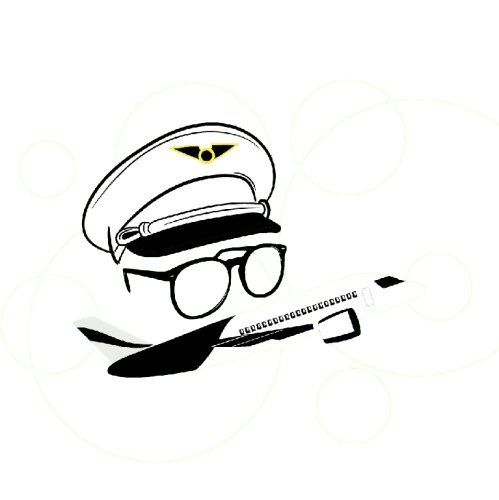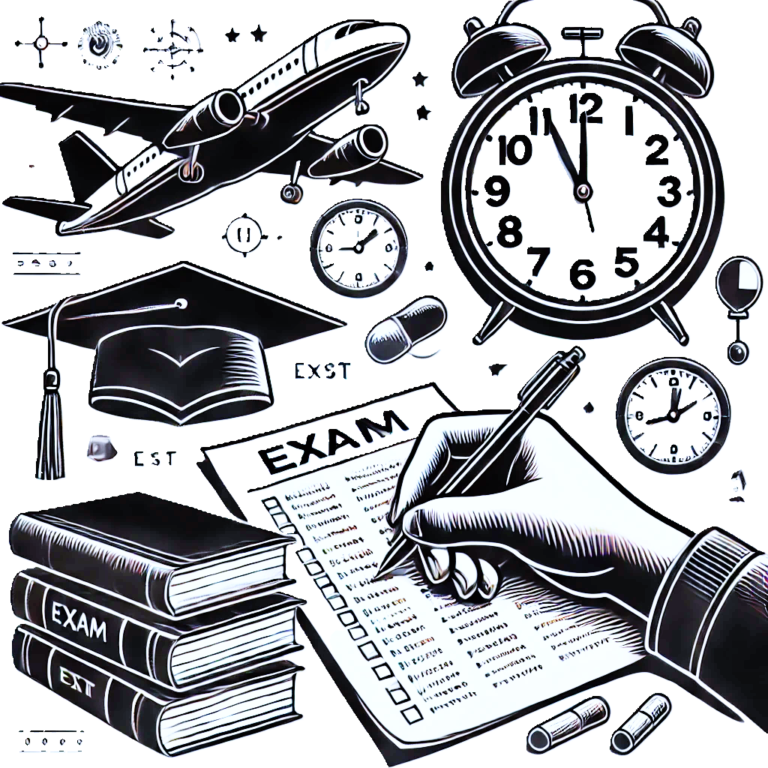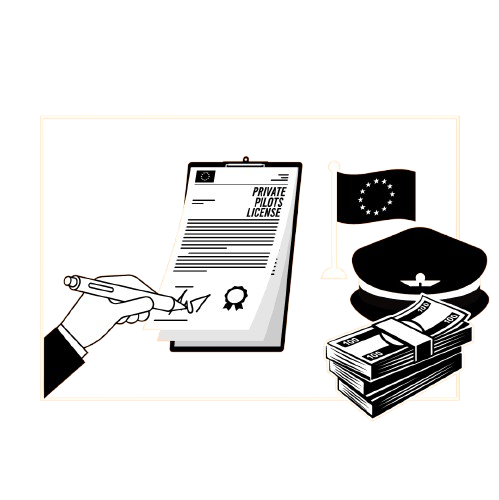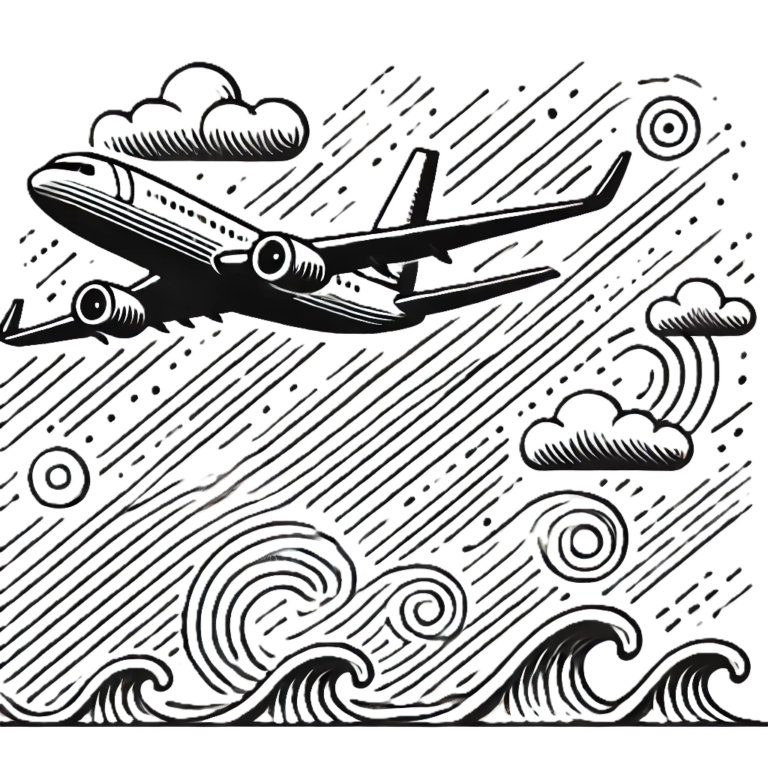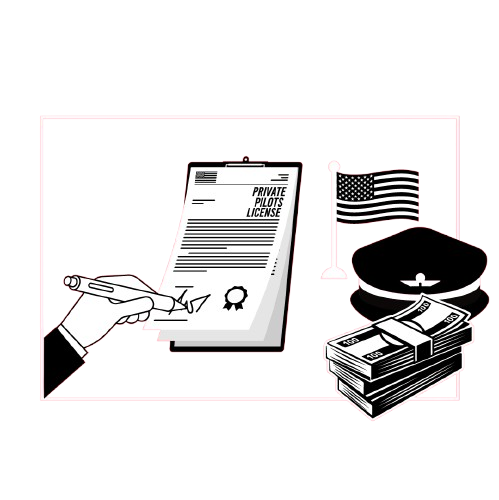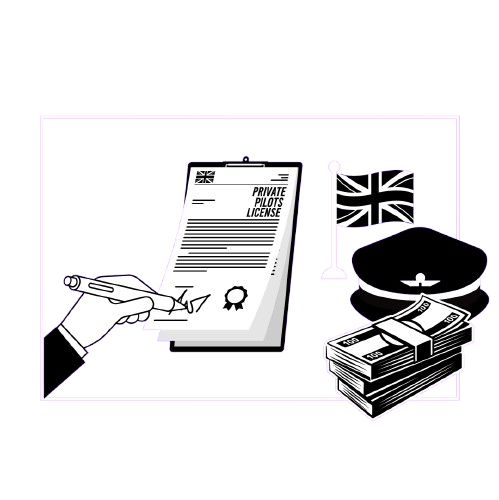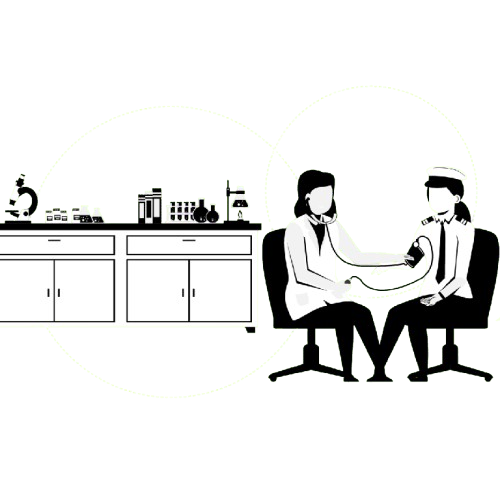CAN PILOTS WEAR GLASSES? – 10 MIN READ
So, can pilots wear glasses?
You’ve probably always been told that pilots need perfect eyesight. Believe it or not, this rumor has put many people off training to become an airline pilot.
If you have ever wondered how to become a commercial pilot, read our full in-depth guide for everything you need!
Many of the pilots that I fly with on a day-to-day basis wear glasses.
However, certain medical standards require color vision and other eyesight requirements, such as 20/20 distance vision.
And here is an extract taken from a table from the FAA governing body in America (you will require a First-Class Medical to be an airline pilot).
These pilots might have had better eyesight when they were younger, but their eyesight has deteriorated with age, and they now require correctable measures for their eyesight.
You might have issues with near vision, depth perception, require reading glasses or any other condition that makes you question if you eyesight is good enough to be a pilot. I’m hoping this guide will answer everything.
It’s always worth researching the medical requirements before researching pilot training and finding the best flight school.
So, do pilots need 20/20 vision, and can pilots wear glasses? Let’s look into it.
Can Pilots Wear Glasses? Or Contact Lenses?
So, can pilots wear glasses?
The short answer to this question is yes, you can be a commercial airline pilot with glasses.
However, it does depend on the reason why you need glasses, as there are many eyesight requirements for pilots.
You do not need perfect eyesight to become an airline pilot. Perfect vision is not a requirement.
I fly with many commercial pilots who wear glasses or contacts. These pilots use contact lenses or glasses to help correct their vision.
You must have a minimum vision standard to become a commercial pilot.
The idea that you are not allowed to wear glasses mainly comes from fighter pilots/airforce pilots, who must wear facial oxygen masks and pull high G-force maneuvers.
This should have answered the question of ‘Can pilots wear glasses’?
Aviation Medical Certificates – Eyesight Requirements CAA/FAA
When asked, ‘Can pilots wear glasses’ we really need to look into what the Class 1 Medical requirements say.
An Aviation Medical Doctor (AME) will assess your vision and eyesight during your first initial medical assessment. You must pass this initial medical check to obtain your Class One Medical Certificate.
Your eyesight will then be monitored throughout your career as a professional pilot during your annual medical renewals.
Your eyesight will deteriorate throughout your career with age. This is why these allowances are made. If not, you wouldn’t see any airline pilots above 50, most likely.
It must comment that it is usually much harder to achieve a Class One Medical than it is to maintain one.
The UK Civil Aviation Authority (CAA) states the following regarding eyesight:
This will probably sound technical, so it’s worth going to an optician if you have any questions or concerns regarding your eyesight.
But hopefully, this helps answer the question of ‘Can pilots wear glasses?’
If you wear glasses or contact lenses, it is important to take your last optician’s report along to the examination.
An applicant may be assessed as fit with hypermetropia not exceeding +5.0 dioptres, myopia not exceeding -6.0 dioptres, astigmatism not exceeding 2.0 dioptres, and anisometropia not exceeding 2.0 dioptres, provided that optimal correction has been considered and no significant pathology is demonstrated.
Monocular visual acuities should be 6/6 or better.
Distance/Distant Vision:
Distant visual acuity, with or without correction, shall be 6/9 or better monocularly, and 6/6 or better binocularly.
And the following regarding color vision:
(a) Applicants shall be assessed as unfit, where they cannot demonstrate their ability to readily perceive the color that are necessary for the safe exercise of the privileges of the license.
(1) Applicants shall be subjected to the Ishihara test for the initial issue of a medical certificate. Applicants who pass that test may be assessed as fit.
And here is an extract taken from a table from the FAA governing body in America:
As you can see, pilots are required to have 20/20 vision, or better in each eye when it comes to their distant vision.
A pilot’s intermediate vision must be 20/40 vision or better, so not the 20/20 vision that is always mentioned.
Do You Need Color Vision To Be A Pilot?
Another related question about ‘Can pilots wear glasses’ concerns color vision.
Yes, you do need normal color vision to become a pilot.
The CAA requirements state that:
(a) Applicants shall be assessed as unfit, where they cannot demonstrate their ability to readily perceive the colour that are necessary for the safe exercise of the privileges of the license.
So to receive the necessary medical qualifications, you will require color vision.
Do You Need 20/20 Vision To Be A Pilot?
The short answer is: it depends.
You will need at least 20/20 distance vision without correction. This is because pilots are required to be able to see distant objects safely to ensure they can see and avoid them if necessary.
But intermediate vision is less restrictive, at the 20/40 requirement.
See the above table for more
According to the American Federal Aviation Administration (FAA), and the UK’s Civil Aviation Authority (CAA), the minimum pilot’s vision requirement for a pilot’s license is 20/40 vision in each eye, with or without correction.
This means that you must be able to read an eye chart from a distance of 20 feet, with the smallest line you can read is equivalent to what a person with normal vision can read from 40 feet away.
If you don’t have the required vision without glasses or contact lenses, that doesn’t necessarily mean you can’t become a pilot. However, pilots must have eyesight that can be corrected via other means (glasses or contacts).
Many commercial pilots wear glasses or contact lenses to correct their vision to 20/40 or, corrected to 20/20, and meet the FAA’s and CAA’s minimum vision requirements.
With Age, Pilots Need Glasses.
As they grow older, can pilots wear glasses?
If pilots were not allowed glasses or contact lenses, the chances are that most pilots would need to retire very early in life, as our eyesight naturally deteriorates over time!
The idea of requiring perfect eyesight to fly as a commercial pilot is usually taken from the air force/military pilots. High G force maneuvers and face oxygen masks mean a pilot needs perfect vision without correctable devices.
In some cases, you may also be able to use laser eye surgery to improve your vision and potentially qualify for a Class One Medical certificate and, therefore, an Airline Transport Pilots License.
So, while having perfect vision isn’t strictly required to become a pilot, it can help.
If you’re an aspiring pilot concerned about your vision and its potential impact on your ability to become a pilot, it’s a good idea to speak with an eye doctor/optician to determine your options.
You can achieve your dream of taking to the skies with the right vision correction and determination.
Book In An Eye Test If You Have Concerns
If you have read this ‘Can pilots wear glasses’ guide and are still confused, then the best thing you can do is book an eye test.
As always, experts will always know the most and will be able to advise you if you have anything wrong with your eyesight.
I recommend booking an eye test before your initial class 1 medical. If you have any issues, you can first research and explore these before seeing your medical examiner.
This will significantly increase your chances of passing your initial Class One Medical first time and potentially save you some money.
If you are diagnosed with eye problems, again, don’t panic.
Your vision is allowed to be correctable and doesn’t need to be perfect.
Corrective eye surgery might be an option to some.
Can Pilots Wear Prescription Sunglasses?
The UK Civil Aviation Authority states:
All pilots requiring a spectacle prescription must have one clear pair of correcting lenses but can have prescription sunglasses as their second pair. The wearing of plano sunglasses on top of prescription glasses is not acceptable.
So yes, you are still allowed to wear these prescription sunglasses, and it’s always recommended that you do, as the sun’s UV rays can be very damaging on eyes that aren’t protected!
Summary – Can Pilots Wear Glasses?
So can pilots wear glasses?
Yes, pilots can wear glasses for most eyesight cases.
As mentioned, though, if you’ve searched for this ‘Can pilots wear glasses’ guide with a concern about your eyesight, then I highly recommend you go and get your eyes tested so you can compare your results against the requirements on the CAA/FAA/EASA website (the governing authority for aviation wherever you are in the world).

